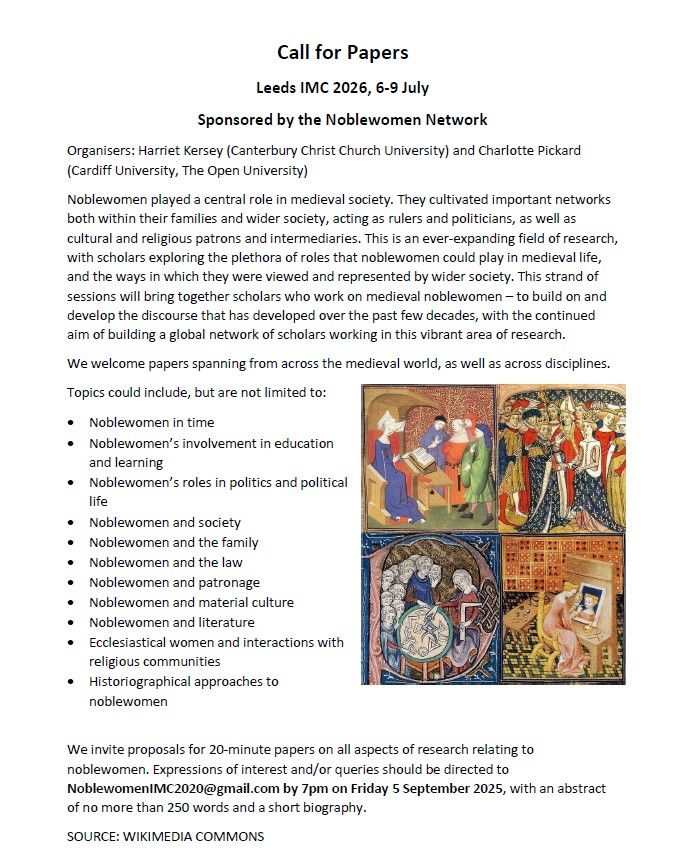Dr Charlotte Pickard
@drcharlottepickard.bsky.social
320 followers
280 following
2 posts
Medievalist researching noblewomen and marriage in 12th/13thc France | AL in FASS @ The Open University | Tutor on Exploring the Past Pathway, Cardiff University | Co-convenor Noblewomen Network | Co-editor of Approaching Medieval Sources Series | she/her
Posts
Media
Videos
Starter Packs
Pinned


